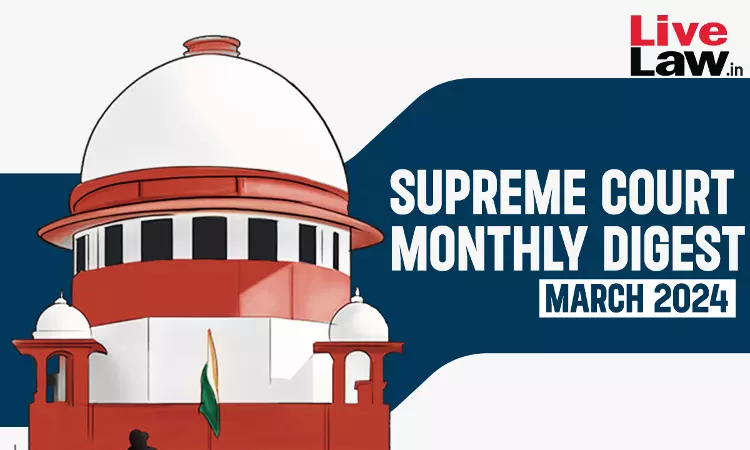- Home
- /
- Supreme court
- /
- Supreme Court Monthly Digest -...
Supreme Court Monthly Digest - March 2024
LIVELAW NEWS NETWORK
28 April 2024 10:28 AM IST
Citations 2024 LiveLaw (SC) 180 to 2024 LiveLaw (SC) 268 Agricultural Produce and Livestock Markets Act, 1966 Agricultural Produce and Livestock Markets Act, 1966 (Andhra Pradesh) – Ghee as a product of livestock – The inclusion of “ghee” as a livestock product cannot be faulted merely because it is not directly obtained from milk, which is a product of livestock, it...
Next Story



